Tree & Plant Species Names & Images | Necessary Vocabulary
Tree
Tree / triː / (ট্রী) n [in botany, a tree is a perennial plant with a stem, twig, or trunk covered with bark, supporting branches and leaves in most species. In some usages, the definition of a tree may be narrower, including only woody plants with secondary growth, plants that are usable as lumber or plants above a specified height. Trees tend to be long-lived, some reaching several thousand years old] (গাছ; বৃক্ষ): Trees swayed gently in the breeze. Tree cover would prevent further soil erosion. Deciduous trees shed their leaves in autumn.
Tree Related Necessary Vocabulary Notes
Ø Botany / ˈbɑːtəni / (ˈবাঃটএনি) n [the scientific study of plants and their structure] (উদ্ভিদ বিদ্যা; উদ্ভিদ বিজ্ঞান):
Ø Perennial / pəˈreniəl / (পএˈরেনিএল্) n [a plant that lives for several years] (দুই বছরের বেশি জীবৎকালীন): Roses and geraniums are perennials, flowering year after year.
Ø Stem / stem / (স্টেম্) n [the main long thin part of a plant above the ground from which the leaves or flowers grow; a smaller part that grows from this and supports flowers or leaves] (বৃক্ষের কাণ্ড; বোঁটা, পাতা, ফুল বা ফলের যে অংশ কাণ্ডের সঙ্গে যুক্ত থাকে): a tall plant with branching stems
Ø Twig / twɪg / (টুইগ্) n [a small thin branch of a tree or bush, especially one removed from the tree or bush and without any leaves] (গাছের ছোট ডাল; প্রশাখা; শাখিকা): We collected dry twigs to start the fire.
Ø Trunk / trʌŋk / (ট্রাঙ্ক্) n [the thick main stem of a tree that the branches grow from] (<গাছের>কাণ্ড বা গুঁড়ি): an instrument made from a hollowed – out tree trunk.
 |
| 1. Bark |
Ø Bark / bɑːrk / (বাঃর্ক্) n 1. [the hard outer covering of a tree] (বাকল; ছাল): The bark peels off in summer.
 |
| 2. Bark |
2. Bark / bɑːrk / (বাঃর্ক্) n [the short loud, rough sound made by dogs and some other animals] (<শিয়াল, কুকুরের>ডাক; ঘেউঘেউ; হুক্কাহুয়া): The dog gave a loud bark.
Ø Branch / bræntʃ / (ব্র্যান্চ্) n [a part of a tree that grows out from the main stem and on which leaves, flowers, and fruits grow] (গাছের ডাল): Watch out for overhanging branches.
Ø Leaf / liːf / (লীফ্) n {Plu. leaves} 1. [a flat green part of a plant, growing from a stem or branch or from the root] (<গাছের>পাতা; পত্র; পল্লব): The trees are just coming into leaf.
2. Leaf / liːf / (লীফ্) n [a sheet of paper, especially a page in a book] (<বইয়ের>পাতা): He carefully turned the leaves of the precious volume.
3. Leaf / liːf / (লীফ্) n [a part of a table that can be lifted up or pulled into position in order to make the table bigger] (টেবিলের পাল্লা, যা টেনে বা ঠেলে বড়ো বা ছোট করা যায়):
Ø Species / ˈspiːʃiːz / (ˈস্পীশীজ্) n [a set of animals or plants in which the members have similar characteristics to each other and can breed with each other] (প্রজাতি): The area is rich in different plant species.
Ø Woody / ˈwʊdi / (ˈউউডি) adj [(of plants) having a thick, hard stem-like wood] (কাঠ বা কাঠের মতো): the woody stems of a plant.
 |
| Timber |
Ø Timber / ˈtɪmbər / (ˈটিমবএর্) n {US lumber} [wood that is prepared for use in building, etc.] (কাঠ চেরাই করা তক্তা): houses built of timber
Ø Long-lived / lɔːŋ-lɪvd / (লোঙ-লিভ্ড্) adj [having a long life; lasting for a long time] (দীর্ঘ দিন বাচে এমন): This type of tree can be exceptionally long-lived.
Ø Sway / sweɪ / (ছোএই) v {Pt. Pp. swayed / sweɪd / (ছোএইড্)} [to move slowly from side to side] (দোলা; দোলানো): The branches were swaying in the wind.
Ø Breeze / briːz / (ব্রীজ্) n [a light and pleasant wind] (মৃদুমন্দ বায়ু/বাতাস): A light breeze was blowing.
Ø Erode / ɪˈroʊd / (ইˈরৌড) v {Pt. Pp. eroded / ɪˈroʊdɪd / (ইˈরৌডিড্)} [to gradually destroy the surface of Sth through the action of wind, rain, etc.; to be gradually destroyed in this way] (ধীরে ধীরে ক্ষয় করা/হওয়া): The river bank had been steadily eroded over the years.
<NOUN> Erosion / ɪˈroʊʒn / (ইˈরৌজ্ন্) n [] (ক্ষয়): soil erosion
Ø Deciduous / dɪˈsɪdʒuəs / (ডিˈছিজুএছ্) adj [(of a tree, bush etc.) that loses its leaves in autumn and grows new ones in the spring] (<গাছ সম্বন্ধে>প্রতি বছর <বিশেষত হেমন্তকালে>পাতা ঝরে যায় এমন; পাতুক; পর্ণমোচী):
Ø Shed / ʃed / (শেড্) v {Pt. Pp. shed} [to lose a covering, such as leaves, hair or skin, because it falls off naturally, or to drop something in a natural way or by accident] (<পাতা ইত্যাদি>ঝরানো; খসানো): How often does snake shed its skin?
Ø Autumn / ˈɔːtəm / (ˈওঃটএম্) n {US fall} [the season of the year between summer and winter, when leaves change color and the weather become colder] (শরৎকাল; হেমন্ত): in early/late autumn
Beech
Beech / biːtʃ / (বীচ্) n {Also beech tree} [a tall forest tree with smooth grey bark, shiny leaves, or the wood from this tree and its fruit, the small nut is important for some wild birds and mammals] (বীচ বৃক্ষ): The great beeches towered up towards the sky. Beech hedges
Ø Forest / ˈfɔːrɪst / (ˈফোরিস্ট্) n [a large area of land covered with trees and plants, usually large than wood, or the trees and plants themselves] (অরণ্য; বন্য; জঙ্গল): The species is found in both coniferous and deciduous forests.
Ø Shiny / ˈʃaɪni / (ˈশাইনি) adj [smooth and bright; reflecting the light] (চকচকে; উজ্জ্বল): His face was red and shiny. Shiny black shoes
Ø Wood / wʊd / (উউড্) n 1. [a hard substance which forms the branches and trunks of trees and which can be used as a building material, for making things or as a fuel] (কাঠ): He fixed a couple of planks of wood to the wall for shelves.
2. Wood / wʊd / (উউড্) n {Plu. woods} [an area of land covered with a thick growth of trees, smaller than a forest] (বনভূমি, বন): a large wood
Ø Nut / nʌt / (নাট্) n [a small hard fruit with a very hard shell that grows on some trees] (কোনোকোনো গাছের ফল বা বাদাম): I cracked a nut and ate it.
Ø Mammal / ˈmæml / (ˈম্যম্ল্) n [any animal of which the female gives birth to babies, not eggs, and feeds them on milk from her own body] (স্তন্যপায়ী প্রাণী): Humans, cattle, whales are all mammals.
Ø Great / greɪt / (গ্রেইট্) adj [very large; much bigger than average in size or quantity] (আকার, পরিমান বা মাত্রায় বড়ো বা মস্তবড়ো): He must have fallen from a great tree.
Ø Tower / ˈtaʊər / (ˈটাউএর্) v [to be very tall or large, than the people or things that are near] (চার পাশের দালান বা কিছুকে ছাড়িয়ে অত্যন্ত উচু হয়ে ওঠা): He towered over his classmates.
Ø Hedge / hedʒ / (হেজ্) n [a row of bushes or small trees planted very close together, especially along the edge of a garden, field or road] (ঝোপ, গুল্ম বা গাছের বেড়া বা প্রাবৃতি): a thick hawthorn hedge | a privet hedge
1. Ash
Ash / æʃ / (এ্যাশ্) n {Also ash tree} 1. [a forest tree which has a smooth grey bark (= outer covering), small greenish flowers and seeds shaped like wings] (ওয়াশিজ বৃক্ষ; রুপালি-ধূসর বাকল ও শক্ত, দৃঢ় কাঠ-বিশিষ্ট অরন্য বৃক্ষ):
 |
| 2. Ash |
2. Ash / æʃ / (এ্যাশ্) n [the grey or black powder that is left after Sth, especially tobacco, wood or coal, has burnt] (ছাই; ভস্ম): He flicked ash into the ashtray. All her dreams had turned to ashes.
Ø Flick / flɪk / (ফ্লিক্) v {Pt. Pp. flicked / flɪkt / (ফ্লিক্ট্)} [to hit Sth with a sudden quick movement, especially using your finger and thumb together, or your hand] (টুসকি/টোকা মারা): Please do not flick ash on the carpet!
Ø Ashtray / ˈæʃtreɪ / (ˈএ্যাশ্ট্রেই) n [a small dish or container, sometimes decorative, in which people can leave cigarette ash and cigarette ends] (ছাই দানি): overflowing ashtrays
Horse Chestnut
Horse chestnut / hɔːrs ˈtʃesnʌt / (হোর্ছ ˈচেছ্নাট্) n [a large tall tree with spreading branches, white or pink flowers and nuts that grow inside cases which are covered with spikes] (শাহ বালুত গাছ):
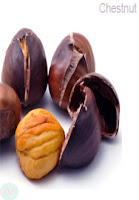 |
| Chestnut |
Chestnut / ˈtʃesnʌt / (ˈচেছ্নাট্) n [a large shiny reddish-brown nut, or the tree on which the nuts grow, some types of which can be eaten] (পিঙ্গল -বাদাম): The dessert was a rich mixture of chestnut puree and cream.
Ø Case / keɪs / (কেইছ্) n [a container or box for storing things in] (খাপ; কোষ; আধার): a jewelry case
Ø Spike / spaɪk / (স্পাইক্) n [a thin object with a sharp point, especially a pointed piece of metal, wood, etc.] (তীক্ষ্ণ, সুচালো আগা বা মুখ): a row of iron spikes on a wall
Ø Dessert / dɪˈzɜːrt / (ডিˈজা্র্ট্) n [sweet food is eaten at the end of a meal] (ভোজের শেষ পদরুপে পরিবেশিত ফল, মিষ্টান্ন ইত্যাদে; ফলাহার): If you make the main course, I will make a dessert.
Ø Puree / pjʊˈreɪ / (প্যিউˈয়ারেই) n [food in the form of a thick liquid made by crushing fruit or cooked vegetables in a small amount of water] (<তরিতরকারির>ঘ্যাঁট): The first solid food she gave her baby was pureed carrot.
Maple
Maple / ˈmeɪpl / (ˈমেইপ্ল্) n [a tree or shrub with lobed leaves that have five points and turn bright red or yellow in the autumn/fall, grown for its timbers and syrupy sap. Maples grow mostly in northern countries] (মেপল্-গাছ): a maple leaf
Ø Shrub / ʃrʌb / (শ্রাব্) n [a large plant with a rounded shape formed from many small branches growing either directly from the ground or from a hard woody stem, grown in gardens] (ঝোপ): shrub roses
<SYN> Bush
Ø Sap / sæp / (ছ্যাপ্) n [the liquid in a plant or tree that carries food to all its parts] (<উদ্ভিদশরীরের> প্রাণ রস): Maple syrup is made from sap extracted from the sugar maple tree.
1. Lime
Lime / laɪm / (লাইম্) n {Also lime tree or linden} 1. [a large tree with light green heart-shaped leaves and yellow flowers] (হলুদ সুবাসিত ফুল বিশিষ্ট এক প্রকার গাছ; চুনীগাছ): an avenue of limes
 |
| 2. Lime |
2. Lime / laɪm / (লাইম্) n [a small, round, green fruit, like a lemon, with a lot of sour juice, used in cooking and in drinks] (কাগজী লেবু): a slice of lime
 |
| 3. Lime |
3. Lime / laɪm / (লাইম্) n [a white substance obtained by heating limestone, used in building materials and also used especially to spread on the land to improve the quality of so that crops grow better] (চুন):
1. Box
Box / bɑːks / (বাঃক্স) n 1. [a slow-growing European evergreen shrub or small tree with small glossy dark green leaves. It is widely used in hedging and for topiary, and yields hard heavy timber] (বাকসো গাছ): |
| Box |
2. Box / bɑːks / (বাঃক্স) n [a square or rectangular container with stiff sides and sometimes a lid] (পেটিকা): He filled the box with old clothes.
Willow
Willow / ˈwɪloʊ / (ˈউইলৌ) n [a tree with long thin branches and long thin leaves that hang down and that often grows near water] (উইলো; সরু নমনীয় শাখাযুক্ত এক প্রকার গাছ ও গুল্ম):
Birch
Birch / bɜːrtʃ / (বা্র্চ্) n [a slender, fast-growing<দ্রুত বর্ধনশীল>, a thin-leaved deciduous hardwood tree that has smooth bark and bears catkins, birch trees grow chiefly in north temperate regions, some reaching the northern limit of tree growth] (ভূর্জ<গাছ>):
Ø Slender / ˈslendər / (ˈস্লেন্ডএর্) adj [thin or narrow] (সরু): The plant’s leaves are long and slender.
Ø Hardwood / ˈhɑːrdwʊd / (ˈহাঃর্ডউউড্) n [hard heavy wood from a broad-leaved tree] (শক্ত, ভারী, টেকসই কাঠ): hardwood floors
Ø Bear / ber / (বেএর্) v {Pt. bore / bɔːr / (বোর্); Pp. borne / bɔːrn / (বোর্ন্)} [to give birth to young, or (of a tree or plant) to give or produce especially fruit or flowers] (<গাছ সম্বন্ধে>ফল ফুল ধরা; জন্ম দেওয়া): The pear tree they planted has never borne fruit.
Ø Catkin / ˈkætkɪn / (ˈক্যাটকিন্) n [a group of small, soft flowers hanging like short pieces of string from the branches of particular trees in the spring] (): birch/willow/hazel catkins
Ø Temperate / ˈtempərət / (ˈটে্মপএরএট্) adj [(of a climate or region) having a mild temperature without extremes of heat or cold] (<আবহাওয়া জলবায়ু সংক্রান্ত>নাতিশীতোষ্ণ): These trees are only found in temperate regions.
Poplar
Poplar / ˈpɑːplər / (ˈপাঃপলএর্) n [a tall, fast-growing tree with branches that form a thin pointed shape, widely grown in shelterbelts and for timber and pulp] (সফিদার বা চিনার গাছ): a tall row of poplars
Ø Widely / ˈwaɪdli / (ˈওআইড্লি) adv [including a lot of different places, subjects, etc.] (ব্যাপকমাত্রায়; বহুলাংশে): His books are widely read.
Ø Shelter / ˈseltər / (ˈছেলটএর্) n [protection from bad weather, danger or attack] (আশ্রয় বা নিরাপদ আশ্রয়): The trees gave/provided some shelter from the bad weather.
Ø Pulp / pʌlp / (পাল্প্) n [a soft substance that is made by crushing wood, cloth or other material and then used to make paper] (<কাগছ তৈরির জন্য ব্যবহৃত কাঠ, বাঁশ ইত্যাদে থেকে প্রস্তুত>মণ্ড): wood pulp
Ø Row / roʊ / (রৌ) n [a line of things, people, animals, trees, etc. arranged next to each other] (<মানুষ বা কোনোকিছুর>সারি): The vegetables were planted in neat rows.
Oak
Oak / aʊk / (ওউক্) n {Also oak tree} [a large tree that produces small nuts called acorns, and has lobed deciduous leaves. Oaks are common in northern countries and can live to be hundreds of years old and an important source of hard and durable wood used chiefly in construction, furniture, and shipbuilding] (ওক): a gnarled old oak tree
Ø Acorn / ˈeɪkɔːrn / (ˈএইকোর্ন্) n [the small brown, the oval nut of the oak tree, that grows in a base shaped like a cup] (ওক গাছের বীজ বা ফল):
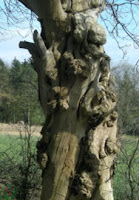 |
| 1. Gnarled |
Ø Gnarled / nɑːrld / (নাঃর্ল্ড্) adj 1. [(of trees) twisted and rough; covered with hard lumps] (<গাছের কাণ্ড সম্বন্ধে>পেঁচানো ও কর্কশ, গ্রন্থিযুক্ত): a gnarled tree trunk
2. Gnarled / nɑːrld / (নাঃর্ল্ড্) adj [(of a person or part of the body) bent and twisted because of age or illness] (<মানুষ সম্বন্ধে>বাঁকা গ্রন্থিযুক্ত): His hands were gnarled with age and arthritis.
Spruce
Spruce / spruːs / (স্প্রূছ্) n [an evergreen (= never losing its leaves) trees with leaves like needles, or the wood from this tree which is pale color, its soft wood, used for making papers] (ফার গাছ):
Ø Evergreen / ˈevərgriːn / (ˈএভএরগ্রীন্) n [describes a plant, bush, or tree which has leaves all through the year] (চির সবুজ): Few plants grow under the dense shade cast by the evergreens.
Larch
Larch / lɑːrtʃ / (লাঃর্চ্) n [a tall tree which grows in cold northern countries and loses its leaves that are shaped like needles in winter and hard dry fruit called cones. It is grown for its tough timber and its resin] (চোঙোকৃতি গাছ বিশেষ):
Ø Cone / koʊn / (কৌন্) n 1. [the hard dry fruit of a pine or fir tree] (ফার, পাইন, সেডার প্রভৃতি চিরহরিৎ বৃক্ষের ফলবিশেষ): a pine cone
2. Cone / koʊn / (কৌন্) n [a shape with a flat, round or oval base and a top which becomes narrower until it forms a point] (গোলাকার ও সমতল তলদেশ বিশিষ্ট মোচাকৃতি বস্তু): a traffic cone
Ø Resin / ˈrezn / (ˈরেজন্) n [a sticky substance that is produced by some trees and is used in making varnish, medicine, etc.] (কিছু গাছের আঠালো রসবিশেষ, যা বার্নিশ বা ওষুধ তৈরিতে ব্যবহৃত হয়; রজন): pine resin
Pine
Pine / paɪn / (পাইন্) n [an evergreen tree that has clusters of long needle-shaped leaves, many kinds are grown for their soft timber, which is widely used for furniture and pulp. That grows in cooler areas of the world] (পাইন গাছ; সরলবৃক্ষ): a plantation of pines tree
Ø Cluster / ˈklʌstər / (ˈক্লাছটএর্) n [a group of things of the same type that grow or appear close together] (গুচ্ছ; স্তবক): The plant bears its flowers in clusters.
Banyan
Banyan / ˈbænjən / (ˈব্যানিএন্) n [a South Asian tree with structures that grow down from the branches to the ground and then grow into new roots and trunks] (বট গাছ):
Acacia
Acacia / əˈkeɪʃə / (এˈকেইশএ) n [a tree from warm parts of the world which has small leaves and yellow or white flowers. There are several types of an acacia tree, some of which produce a sticky liquid used in making glue] (বাবল গাছ):
Teak
Teak / tiːk / (টীক্) n {Also teak tree} [a large deciduous tree or its wood, one of the most valuable timbres, it is sometimes known as the “Burmese teak”. Teak wood has a leather-like smell when it is freshly milled] (সেগুন গাছ বা কাট): a teak log
 |
| Log |
Ø Log / lɔːg / (লোগ্) n [a thick piece wood that is cut from a tree trunk or branch, or has fallen from a tree, especially one cut for plunking or for burning on a fire] (কাঠের গুড়ি): a pile of sawn logs
Mahogany
Mahogany / məˈhɑːgəni / (মএˈহাঃগএনি) n [the mahogany tree is such a lovely shade tree that has hard reddish-brown timber, used for making furniture] (মেহগিনি): a handsome mahogany table
Ø Lovely / ˈlʌvli / (ˈলাভ্লি) adj [beautiful; attractive] (সুন্দর; আকর্ষণীয়; মনোরম): lovely countryside/flowers
<SYN> Pretty
Ø Handsome / ˈhænsəm / (ˈহ্যান্ছএম্) adj [beautiful to look at] (সুশ্রী): a handsome horse/house/city
Royal Poinciana
Royal Poinciana / ˈrɔɪəlˌpɔɪnˈsɪənə / (ˈরোইএল্ ˌপোইন্ˈছিএনএ) n {Also flamboyant} [royal poinciana, also called flamboyant tree, strikingly beautiful flowering tree of the pea family. In many tropical parts of the world it is grown as an ornamental tree] (কৃষ্ণচূড়া):
Ø Flamboyant / flæmˈbɔɪənt / (ফ্ল্যাম্ˈবোইএন্ট্) adj [brightly colored and noticeable] (জাঁকালো; উজ্জ্বল বর্ণশোভিত; বর্ণাঢ): flamboyant clothes/designs
Ø Striking / ˈstraɪkɪŋ / (ˈস্ট্রাইকিঙ্) adj [very unusual or easily noticed and therefore attracting a lot of attention] (চমক-লাগানো; বিস্মায়ক; চিত্তহারী): That hat looks very striking.
<SYN> Marked
<ADV> Strikingly // () adv [] (): Her husband is strikingly handsome.
Ø Ornamental / ˌɔːrnəˈmentl / (ˌওর্নএˈমেন্টল্) adj [used as decoration rather than for a practical purpose] (শোভাবর্ধক; শোভাময়): The handles on each side of the box are purely ornamental.
<SYN> Decorative
1. Palm
Palm / pɑːm / (পাঃম্) n {Also palm tree} 1. [a straight tree a mass of long pointed leaves at the top that grows in hot countries. There are several types of a palm tree, some of which produce fruit] (পাম গাছ <তাল জাতীয় গাছ>): palm leaves/fronds/groves
 |
| 2. Palm |
2. Palm / pɑːm / (পাঃম্) n [the inner surface of the hand between the wrist and the fingers] (হাতের তালু; করতল): I pressed my palm to the wound to stop the bleeding.
Ø Frond / frɑːnd / (ফ্রাঃন্ড্) n [a long leaf of some plants or trees, especially palms or ferns. Fronds are often divided into parts along the edge] (ফার্ন বা তালগাছের লম্বা পাতা): Ferns and palms have fronds.
Ø Grove / groʊv / (গ্রৌভ্) n [a small area of land with fruit trees of particular types on it] (কুঞ্জবন; তরুবীথি): a grove of birch trees
Betel Nut Tree
Betel nut tree / ˈbiːtəl nʌt triː / (ˈবীটএল্ নাট্) n {Also betel palm tree} [southeastern Asian palm tree bearing betel nuts] (সুপারি গাছ): |
| Betel Nut |
Betel nut / ˈbiːtəl nʌt / (ˈবীটএল নাট্) n [the fruit of the betel nut tree, chewed with leaves of the betel pepper by some Southeast Asian peoples as a mild stimulant] (সুপারি):
Elm
Elm / elm / (এল্ম্) n [a tall deciduous tree that typically has rough serrated leaves, which loses in winter, and propagates from root sucker] (দেবদারু জাতীয় বৃক্ষ; দেব-বৃক্ষ): a line of stately elms
 |
| Serrated |
Ø Serrated / səˈreɪtɪd / (ছএˈরেইটিড্) adj [having a series of sharp points on the edge like a saw] (খাঁজকাটা প্রান্তযুক্ত; দাঁতালো): You really need a knife with a serrated edge for cutting bread.
Ø Propagate / ˈprɑːpəgeɪt / (ˈপ্রাঃপএগেইট্) v [to produce new plants from a parent plant] (<উদ্ভিদ>বংশবিস্তার করা): Plants needs certain conditions to propagate.
Ø Root / ruːt / (রূট্) n [the part of a plant which grows down into the earth to get water and food and which holds the plant firm in the ground] (শিকড়; বৃক্ষাদির মূল): root crops/vegetables
Ø Sucker / ˈsʌkər / (ˈছাকএর্) n [a part of a tree or bush that grows from the roots rather than from the main stem or the branches and can form a new tree or bush] (গাছ, গুল্ম ইত্যাদির শিকড় থেকে উদ্গত অঙ্কুর; প্ররোহ; গজ):
Ø Stately / ˈsteɪtli / (ˈস্টেইট্লি) adj [impressive in size, appearance or manner] (দৃষ্টিনন্দন): an avenue of stately chestnut trees.
<SYN> Majestic
Cedar
Cedar / ˈsiːdər / (ˈছীডএর্) n [a tall evergreen tree with wide-spreading branches, it has hard redwood, which has sweet smell] (পাইন জাতীয় চিরহরিৎ বৃক্ষবিশেষ; দারুবৃক্ষ):
Eucalyptus
Eucalyptus / juːkəˈlɪptəs / (ইঊকএˈলিপ্টএছ্) n {Also gum-tree} [a tall straight tree with leaves that produce an oil with a strong smell, that is used in medicine and industry. There are several types of eucalyptus and they grow especially in Australasia] (ইউক্যালিপটাস্): Eucalyptus is valued for its timber, oil, gum, and resin and as an ornamental tree.
Ø Gum / gʌm / (গাম্) n 1. [a sticky substance which comes from the stem of some trees and plants, or a type of glue used for sticking together pieces of paper] (<কিছু গাছ হতে নির্গত>আঠা; গঁদ):
2. Gum / gʌm / (গাম্) n [either of the firm areas of flesh in the mouth to which the teeth are attached] (দাঁতের মাঢ়ি): sore gums
Fir
Fir / fɜːr / (ফা্র্) n [an evergreen coniferous tree with upright cones and flat needle-shaped leaves, typically arranged in two rows. They are an important source of timber and resins] (দেবদারু গাছ):
Yew
Yew / juː / (ইঊ) n [a small evergreen tree with dark green, flat leaves like needles and small red cones, or the wood from this tree] (ঘন সন্নিবিষ্ট গাঢ় সবুজ পত্র যুক্ত চিরশ্যামল এক ধরণের গাছ):
Mangrove
Mangrove / ˈmæŋgroʊv / (ˈম্যাঙ্গ্রৌভ্) n [a tropical tree that grows in mud or at the edge of rivers and has roots that are above ground] (গরান গাছ): a mangrove swamps
Ø Swamp / swɑːmp / (ছোঅম্প্) n [an area of ground that is very wet or covered with water and in which plants, trees, etc. are growing] (জলাভূমি; জলা): tropical swamps
<SYN> March
Nipa Palm
Nipa palm / nɪpʌ pɑːm / (নিপা পাঃম্) n {Also fruticans palm} [it is a mangrove species, distributed throughout of Asia, Oceania and east coast of Africa. It is a trunkless palm with tall erect leaves (3-9 m long). The underground stem is a short horizontal rhizome with massive dense root system] (গোলপাতা <গাছ>):
Ø Distribute / dɪˈstrɪbjuːt / (ডিˈছ্ট্রিবিঊট্) v {~ Sth} [to spread Sth, or different parts of Sth, over an area,] (<কোনোকিছু বিভিন্ন অংশে>ছড়িয়ে দেওয়া): Cases of the disease are wildly distributed through Europe.
Ø Erect / ɪˈrekt / (ইˈরেক্ট্) adj [in a vertical position] (সিধা; খাড়া): Stand with your arms by your side and your head erect.
<SYN> Straight
Ø Rhizome / ˈraɪzoʊm / (ˈরাইজৌম্) n [a stem of some plants which grows horizontally along or under the ground and which produces roots and leaves] (<উদ্ভিদ>কোনো কোনো গাছের পুরু অনুভূমিক কাণ্ড):
Ø Dense / dens / (ডেন্ছ্) adj [containing a lot of people, things, plants, etc. with little space between them] (ঘন; নিবিড়): area of dense population
Laburnum
Laburnum / ləˈbɜːrnəm / (লএˈবা্র্নএম্) n {Also golden chain or golden rain} [a small tree with groups of yellow flowers hanging down] (লাবা্র্নাম গাছ):
Mahua
Mahua / / () n {Also mahuwa, mahwa, mohulo, or Iluppai or vippa chettu} [an Indian tree which has fleshy edible flowers and yields oil-rich seeds, a fast-growing tree that found largely in the central and north Indian plains and forests] (মহুয়া):
Sandalwood
Sandalwood / ˈsændəlwʊd / (ˈছ্যান্ডএল্উউড্) n [the sweet-smelling wood of a tree that is found in South Asia and Australia. It is also the name of the tree itself] (স্যান্ডাল্উউড্ <গাছ>):
Sheesham
Sheesham // () n [a fast-growing, medium to a large, hardy deciduous tree with a light crown which reproduces by seeds and suckers, native to the Indian Subcontinent and Southern Iran] (শীশাম গাছ):
Peepal Tree
Peepal tree / / (পীপএল ট্রী) n {Also ashwattha tree} [a species of fig native to the Indian subcontinent and Indochina, the sacred fig is considered to have a religious significance in three major religions that originated on the Indian subcontinent, Buddhism, Hinduism, and Jainism. It is the type of tree that Gautama Buddha is believed to have attained enlightenment under, and Hindu and Jain ascetics also consider the tree to be sacred and often meditate under them] (অশ্বত্থ, বা পিপল গাছ):
Henna Tree
Henna tree / ˈhenə triː / (ˈহেনএ ট্রী) n [it is a kind of large shrub or small tree. The leaves are leafy green in color which is long, spear-shaped and oval, are dried and ground to form a fine powder. It is also used in wedding occasions to color hands and legs] (মেহেদি গাছ): Is her hair dyed with henna or is that a natural red.
Bonsai
Bonsai / ˈbɑːnsaɪ / (ˈবাঃনছাই) n [bonsai is a Japanese art form using trees grown in containers and is stopped from growing bigger or its normal size by repeatedly cutting the roots and branches] (বনসাই বা বামন গাছ):
1. Stump
Stump / stʌmp / (স্টাম্প্) n 1. [the bottom part of a tree left in the ground after the rest has fallen or been cut down] (কাটা বৃক্ষের ভূমিস্থ অধোভাগ; মুড়া): the stump of a tree
 |
| 2. Stump |
2. Stump / stʌmp / (স্টাম্প্) n [(in cricket) one of the sets of three vertical wooden sticks (called the stumps) that from the wicket] (<ক্রিকেট>স্ট্যাস্ম): the leg/middle/off stump
Ø Vertical / ˈvɜːrtɪkl / (ˈভা্র্টিক্ল্) adj [(of a line, pole, etc.) going straight up or down from a level surface or from top bottom in a picture, etc.] (খাড়া; উল্লম্ব): The cliff was almost vertical.
Ø Wicket / ˈwɪkɪt / (ˈউইকিট্) n [(in cricket) either of the two sets of three vertical sticks (called stumps) with pieces of wood (called bails) lying across the top. The bowler tries to hit the wicket with the ball] (<ক্রিকেট>উইকেট):
1. Plant
Plant / plænt / (প্ল্যান্ট্) n 1. [a living thing that grows in the earth and usually has a stem, leaves and roots, especially one that is smaller than a tree or bush] (উদ্ভিদ; চারাগাছ; গাছড়া): flowering/garden/indoor plants
<VERB> Plant / plænt / (প্ল্যান্ট্) v {Pt. Pp. planted / plæntɪd / (প্ল্যান্টিড্)} [to put plants, seeds into the ground so that it will grow] (<চারা গাছ>রোপন/বপন করা; লাগানো): Plant these bulbs/shrubs in full sun.
 |
| 2. Plant |
2. Plant / plænt / (প্ল্যান্ট্) n [a factory or place where power is produced or an industrial process takes place] (<শিল্পোউৎপাদনে ব্যবহৃত>যন্ত্রপাতি, কলকব্জ): a nuclear power plant * Japanese car plants
Reed
Reed / riːd / (রীড্) n [a tall plant like grass with a hollow stem that grows in or near water or on the marshy ground] (নলখাগড়া): The edge of the lake was fringed with reeds.
Ø Hollow / ˈhɑːloʊ / (ˈহাঃলৌ) adj [having a hole or empty space inside] (ফাঁপা; শূন্যগর্ভ): The tree trunk was hollow inside.
Ø Marsh / mɑːrʃ / (মাঃর্শ্) n [ground near a lake, river or the sea that often floods and is always wet] (জলাভূমি; জলা): At the mouth of the river is a large area of marsh.
<ADJ> Marshy / mɑːrʃi / (মাঃর্শি) adj [describes an area of land that is always wet; like a marsh] (জলাবস্থা): marshy ground/land
Ø Fringe / frɪndʒ / (ফ্রিন্জ্) n {US bangs} [a narrow strip of trees, building, etc. along the edge of Sth] (কোনোকিছুর উপর, কোনোকিছু ঝুলে থাকা): a fringe of woodland
<ADJ> Fringed / frɪndʒd / (ফ্রিন্জ্ড্) adj [with a fringed] (<কোনোকিছুর>ঝালর): a robe fringed with fur
Rattan
Rattan / ræˈtæn / (র্যাˈট্যান্) n [a SE Asian climbing plant with long, thin, strong stems used especially for making furniture] (বেতের মতো দীর্ঘ সরু কাণ্ড বিশিষ্ট উদ্ভিদ; রত্তন): a rattan chair
Bulrush
Bulrush / ˈbʊlrʌʃ / (ˈবুলরাশ্) n [a tall plant with long narrow leaves and a long brown head of flowers that grows in or near water] (শর):
Violet
Violet / ˈvaɪələt / (ˈভাইএলএট্) n 1. [a small wild or garden plant with purple or white flowers with a sweet smell that appears in spring] (সুগন্ধ পুষ্প বিশিষ্ট ক্ষুদ্র বুনো বা উদ্যান-উদ্ভিদ; ভায়োলেট):
2. Violet / ˈvaɪələt / () n [having a bluish-purple colour] (বেগুনী রং):
Fern
Fern / fɜːrn / (ফা্র্ন্) n [a flowerless plant that has feathery or leafy fronds and reproduces by spores released from the undersides of the fronds. They have a vascular system for the transport of water and nutrients, and grow in wet areas or is grown in a pot. There are many types of fern plant] (ফার্ন গাছ; ঢেকিয়া গাছ):
Ø Feathery / ˈfeðəri / (ˈফেদএরি) adj [soft or delicate, or made of many very small and delicate pieces, like feathers] (পালকতুল্য): feathery leaves/snowflakes
Ø Spore / spɔːr / (স্পোর্) n [one of the very small cells that are produced by some plants and that develop into new plants] (যে বীজানু বা রেনুর সাহায্যে শেওলাজাতীয় অপুষ্পক উদ্ভিদ বংশবিস্তার করে; বীজগুটি): Ferns, mosses, and mushrooms spread by means of spores.
Ø Vascular / ˈvæskjələr / (ˈভ্যাছ্কিএলএর্) adj [relating to the tubes which carry blood or liquids in animals and plants] (<রক্ত, রস ও লসিকাবাহী>নালীময়): vascular disease
Boston Fern
Boston fern / ˈbɒstən fɜːnr / (ˈবাছএন ফা্র্ন্) n [a luxuriant fern often with drooping much-divided fronds, used as a house plant] (বাস্টান ঢেকিয়া):
Aloe Vera
Aloe Vera / ˌæloʊ ˈvɪrə / (ˌএ্যালৌ ˈভিরএ) n [a type of plant with thick pointed leaves, or the thick liquid found in the leaves that are used to treat damaged skin] (ঘৃতকুমারী গাছ):
Thuja
Thuja / ˈθjuːdʒə / (ˈথূজএ) n [evergreen shrubs and trees of the cypress family that are native to North America and eastern Asia, have flattened branchlets with closely overlapping scale-like leaves, and include various dwarf horticultural cultivars] (থূজা <গাছ>):
Mother-in-law’s Tongue
Mother-in-law’s tongue / ˈmʌðər- ɪn- lɔː`ʒ tʌŋ / (মাদএর্-ইন্-লো`জ্ টাঙ্) n {Also snake plant} [mother-in-law’s tongue is one the easiest of indoor plant, that can grow without sunlight and do not need regular pruning or watering. It is a vertical accent plant for a pot indoors, to grow against a wall where nothing else grows] (শাশু-জিহবা <গাছ>):
Ø Mother-in-law / ˈmʌðər- ɪn- lɔː / (ˈমাদএর্-ইন্-লো) n [the mother of your husband or wife] (শাশুড়ি):
 |
| Mother-in-law |
Ø Prune / pruːn / (প্রূন্) v {Pt. Pp. pruned / pruːnd / (প্রূন্ড্)} [to cut off some of the branches from a tree, bush, etc. so that it will grow better and stronger in future] (<গাছ, ঝোপঝাড় ইত্যাদি>অংশবিশেষ ছাঁটা; ছেঁটে দেওয়া): I pruned the longer branches off the tree.
<NOUN> Pruning / pruːnɪŋ / (প্রূনিঙ্) n [] (<গাছপালা>ছাঁটাই): All roses require annual pruning
Elephant Ear Plant
Elephant ear plant / ˈelɪfənt ɪr plænt / (ˈএলিফএন্ট্ ইএর্ প্ল্যান্ট্) n {Also taro} [elephant ear plant is a perennial herb that grows up to 9 feet (3 meters), native to southeastern Asia and the Indian subcontinent. It gets its name because the large leaves resemble the ears on an elephant] (কচু গাছ): elephant ear greens
Ø Elephant / ˈelɪfənt / (ˈএলিফএন্ট্) n [a very large grey mammal which has a trunk (=long nose) with which it can pick things up] (হাতি): herds of elephants
Ø Ear / ɪr / (ইএর্) n [either of the organs on the sides of the head that you hear with] (কান):
Ø Herb / hɜːrb / (হা্র্ব্) n [a type of plant whose leaves are used in cooking to give flavor to particular dishes, or which are used in making medicine] (ভেষজ্য <উদ্ভিদ>): dried/fresh herbs
Ø Resemble / rɪˈzembl / (রিˈজেম্ব্ল্) v [to look like or be like someone or something] (সদৃশ হওয়া; <কোনোকিছুতে>মিল থাকা): The plant resembles grass in appearance.
Nettle
Nettle / ˈnetl / (ˈনেটল্) n [a wild plant with heart-shaped leaves that have pointed edges, are covered in fine hairs and sting if you touch them] (বিছুটি গাছ; চোতরা গাছ): stinging nettles
Ø Sting / stɪŋ / (স্টিঙ্) n [the sharply pointed part of some insect, some plants or creature that can go into the skin leaving a small, painful and sometimes poisonous wound] (বিষাক্ত হুল): Be careful of the nettles – they have sting!
Moss
Moss / mɔːs / (মোছ্) n [a very small green or yellow plant without flowers that grows especially in dame surfaces, rocks, walls, and tree trunks] (শেওলা; শৈবাল): The rocks near the river were covered with moss.
Lichen
Lichen / ˈlɪtʃən / (ˈলিচএন্) n [a very small grey or yellow plant-like organism that spreads over the surface of rocks, walls, and trees and does not have any flowers] (দেয়াল, পাথর বা গাছের গুঁড়িতে জন্মানো শৈবালের ন্যায় এক প্রকার ছাত্রাক):
Ivy
Ivy / ˈaɪvi / (ˈআইভি) n [a climbing plant, especially one with dark green shiny leaves with five points, which often grows up trees or building] (আইভি গাছ): Ivy covered the broken walls.
Croton
Croton / ˈkrəʊtən / (ˈক্রাউটএন্) n [a small evergreen tree or shrub of the Indo-Pacific region, which is grown for its colorful ornamental foliage] (ক্রাউটান <গাছ>):
Zz Plant
Zz Plant / zed plænt / (যেড্ যেড্ প্ল্যান্ট্) n {Abbr Zamioculcas zamiifolia} [the "ZZ" plant is one of the most adaptable houseplants you can grow! The amazingly tough thick, shiny leaves tolerate low light conditions, and the plant has storage tubers that help them tolerate drought] (যেড যেড উদ্ভিদ):
Grass
Grass / græs / (গ্র্যাছ্) n [a low green plant which grows naturally over a lot of the Earth’s surface, having groups of very thin leaves and stems that are eaten by cattle, horses, sheep, etc. which grow in large numbers very close together] (ঘাস; তৃণ): a blade of grass
Ø Blade / bleɪd / (ব্লেইড্) n [a single flat leaf of grass] (তৃণ ফলা বা বৃক্ষপত্র): Not a blade of grass stirred.
Pampas Grass
Pampas grass / ˈpæmpəs ˌɡræs / (ˈপ্যাম্পএছ্ ˌগ্র্যাছ্) n [a type of tall grass from South America that is often grown in gardens/yards for its long silver-white flowers that look like feathers] (কাশ ফুল গাছ):
Fountain Grass
Fountain grass / ˈfaʊntɪn ɡræs / (ˈফাউন্টিন্ গ্র্যাছ্) n {Also ornamental grass} [a tuft shaped perennial grass that is hardy and low maintenance, with tough green leaves and stems and spikes of feathery flower clusters] (ঝর্ণা ঘাস):
Ø Fountain / ˈfaʊntɪn / (ˈফাউন্টিন্) n [a structure from which water is sent up into the air by a pump, used to decorate parks and gardens/yards, etc.] (ঝর্ণা; ফোয়ারা):
Spider Plant
Spider plant / ˈspaɪdər ˌplɑːnt / (ˈস্পাইডএর্ ˌপ্লান্ট্) n {Also airplane plant; spider ivy} [a plant of the lily family which has long, narrow green leaves with a central yellow or white lines, native to southern Africa and commonly found in houses and offices] (মাকড়সা উদ্ভিদ):
 |
| Spider |
Ø Spider / ˈspaɪdər / (ˈস্পাইডএর্) n [a small creature with eight legs. Most types of spider make structures called webs in which they catch insects for food] (মাকড়সা):
Aglaonema Plant
Aglaonema plant // () n [flowering plants in the arum family with thick fleshy oblong leaves, native to tropical and subtropical regions of Asia and New Guinea. They are known commonly as Chinese evergreens] ():
Money Plant
Money plant / ˈmʌni plænt / (ˈমানি প্ল্যান্ট্) n [southeastern European plant cultivated for its fragrant purplish flowers and round flat papery silver-white seedpods that are used for indoor decoration] (টাকা উদ্ভিদ):
Ø Money / ˈmʌni / (ˈমানি) n [coins or notes (= special pieces of paper) that are used to buy things, or an amount of these that a person has] (টাকা): How much money do you have on you? $100 in notes and a few coins.
Pancake Plant
Pancake plant / ˈpænkeɪk plænt / (ˈপ্যান্কেইক প্ল্যান্ট্) n {Also Chinese money plant} [a species of flowering plant in the nettle family with flat, round leaves and, long, thin, red stems, native to Yunnan and Sichuan provinces in southern China] (প্যান্কেইক উদ্ভিদ):
 |
| Pancake |
Ø Pancake / ˈpænkeɪk / (ˈপ্যান্কেইক) n [a thin, flat, circular piece of cooked food made from milk, flour, and eggs, frying it on both sides] ():
Dieffenbachia
Dieffenbachia / ˌdiːfənˈbakɪə / (ˌডীফএন্বাকিএ) n [a plant of a genus that includes dumb cane and its relatives, which are grown as pot plants for their handsome variegated foliage] (ডিফানবাকিয়া উদ্ভিদ):
Areca Palm
Areca palm / əˈriːkə pɑːm / (এˈরীকএ পাঃম্) n [a palm of the genus Areca, used as a house plant] (এরীকা পাম):
Lucky Bamboo
Lucky bamboo / ˈlʌki bæmˈbuː / (ˈলাকি ব্যাম্বূ) n [Keeping lucky bamboo inside houses, and business places are believed to bring happiness and prosperity, and this belief has promoted sales of lucky bamboo shoots grown in decorative pots. The plant has become the most popular indoor plant in certain parts of India, where the plants are usually imported from China and Taiwan] (শুভ বাঁশ <উদ্ভিদ>):
Bamboo
Bamboo / ˌbæmˈbuː / (ˌব্যামˈবূ) n [a tall tropical plant that is a member of the grass family and has hard hollow stems that are used for making furniture, poles, etc.] (বাঁশ; বংশ): Use bamboo canes to support tomato plants.
Ø Tropical / ˈtrɑːpɪkl / (ˈট্রাঃপিক্ল্) adj [from or relating to the area between the two tropics] (গ্রীষ্মমণ্ডলীয়): tropical fish
Ø Pole / poʊl / (পৌল্) n [a long thin straight piece of wood or metal, especially one with the end placed in the ground, used as support] (খুঁটি): a tent pole
Ø Cane / keɪn / (কেইন্) n [the long, hard, hollow stem of particular plants such as bamboo, sometimes used to make furniture or support other plants in the garden] (বেত): a basket made of cane
Tree and Plant species - English vocabulary
Noted from Google Image; Oxford & Cambridge Dictionary


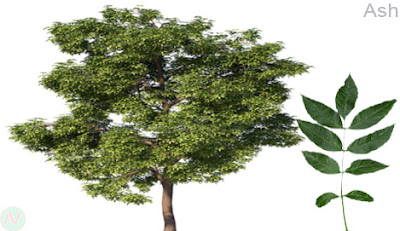

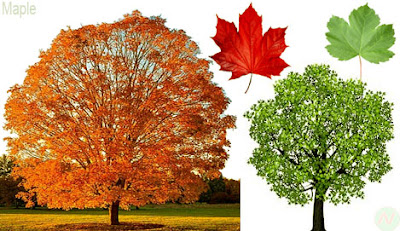








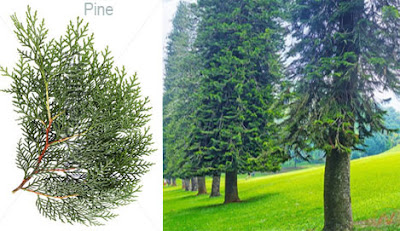
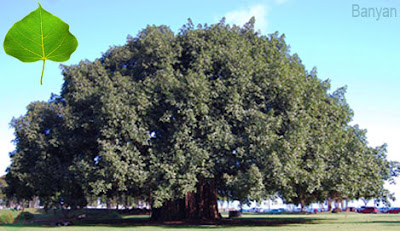















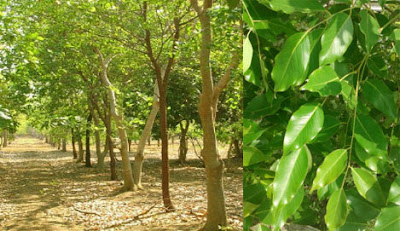



















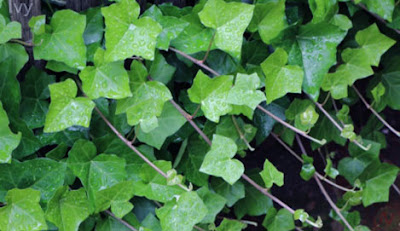







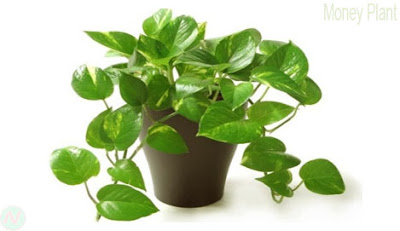















No comments